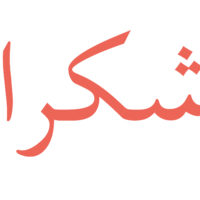In India, ‹Dhanyawaad› is the word closest to the German word ‹Danke›. It means ‹I feel deep gratitude›. Accordingly, it is rarely used. In India, I feel that it’s a matter of course to do things for each other without having to explicitly say thank you.
It is facial expressions or even gestures that express gratitude – lowering your gaze briefly, combined with a nod or, underlined, bringing both hands together in front of your chest in a praying position, as is also customary in India when using ‹Namasté› to greet someone. Elderly people show gratitude mainly by placing a hand on the person’s forehead they are thanking, as if in blessing. Hardly anyone would expect a spoken ‹Dhanyawaad› from them. In India, is not so much about saying thank you out of politeness and using a word, but about feeling that another person has done something good for me. This has less to do with that person specifically, but through them, I feel connected to something divine. It is also an expression of the fact that, in Indian understanding, every deed (karma) ultimately occurs through divine inspiration. Therefore, gratitude is also directed towards the divine. Someone who is connected to spiritual life would hardly accept a ‹Dhanyawaad› but would answer by referring to divine inspiration – because they do not consider themself the generative, but rather the executing force. Since colonial times, the English ‹thank you› has become much more incorporated into common language, especially among younger people. It is fair to assume that it has replaced ‹Dhanyawaad› and especially the attitude associated with it to some extent. Translator: Simone Stadlbacher





